1 in 5 Australians experience heartburn and GERD (Gastro-Esophageal Reflux Disease) each year.
In this article I share key insights how I go about resolving reflux & GERD by treating the underlying causes such as low stomach acid, bacterial overgrowth and carbohydrate malabsorption
I also show you how to improve gut function by restoring good bacteria and building a healthy mucosal lining.
Heartburn Isn’t What You Think
If you ask most people what causes heartburn, they’ll usually respond, “too much acid.”
However, the majority of research shows that stomach acid declines with age, but heartburn & GERD increases with age.
This means that if heartburn & GERD were really caused by too much acid we’d have children taking antacids instead of elderly patients.
But of course, the opposite is true.
Billion Dollar Antacid Drugs
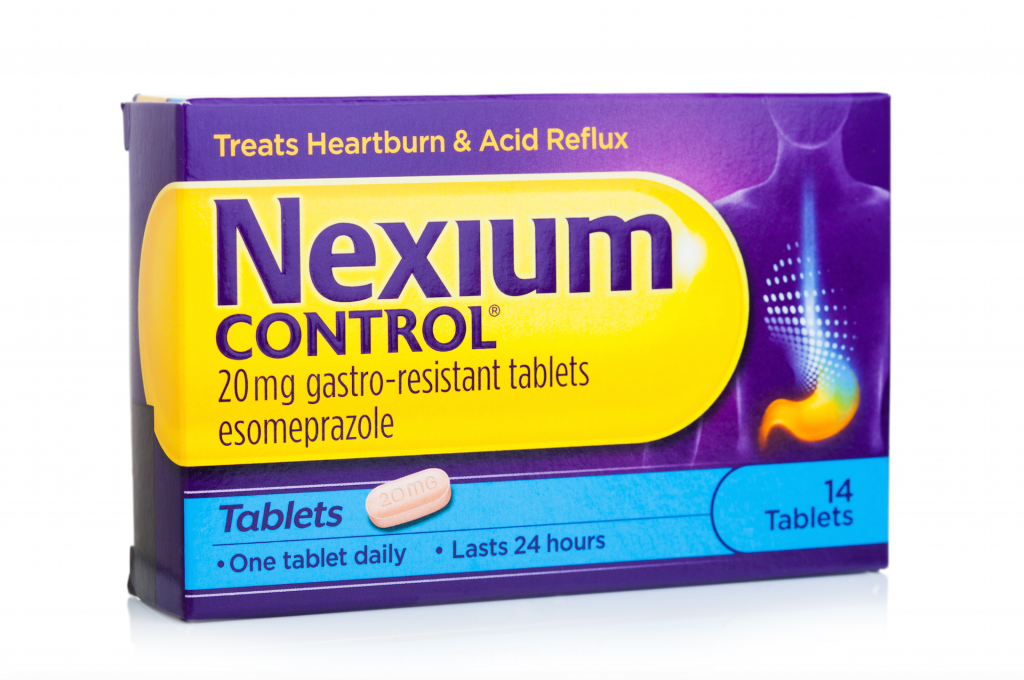
Billions of dollars are spent on ant acids such as Nexium each year.
This would be justified if they cured heartburn.
However, not only do these drugs fail to treat the underlying cause of acid reflux and GERD, but they actually make it worse.
Curing a disease means fixing the underlying cause.
Therefore, when the cause has been resolved, the symptoms won’t return when the treatment stops.
This is not the case with ant acids.
When patients stop taking antacids, the symptoms come back and often worse than before.
The reality is that even though ant acids such as Nexium are not supposed to be used for more than 6 weeks, many patients end up taking them for the rest of their life. This could be because patients are not educated on the cause of their symptoms.
Unfortunately, drug companies are aware that heartburn and GERD are not caused by too much acid. However, this doesn’t stop them selling acid lowering drugs to the unsuspecting public.
Health Risks From Antacids
Millions of people take antacids to reduce symptoms of acid reflux.
What most people don’t know is antacids fail to address the cause of heartburn and can even put our health at risk.
Antacids may contribute to serious health problems including:
- An overgrowth of bad bacteria
- Problems absorbing nutrient from food
- A lowered immune system
- Increased risk of cancer
If there’s low stomach acid, chemical reactions required to absorb nutrients are negatively impacted.
Over time this absorption problem can lead to other problems such as anemia, cardiovascular disease and more.
In one study 80% of people with chronic iron deficiency anemia where found to have low acid secretion!
While research has shown that increasing stomach acid (in patients with low stomach acid) improves iron absorption.
Research has shown low stomach acid reduces absorption of B12, iron, calcium, folate and zinc.
Further more, a condition called atrophic gastritis (stomach acid is low) is associated with problems such as:
- Allergies & bronchial asthma
- Depression, anxiety, mood disorders
- Acne, dermatitis, eczema & urticaria
- Autoimmune diseases (RA & Graves disease)
- Irritable bowel syndrome (IBS), Crohn’s disease (CD), Ulcerative colitis (UC)
- Chronic hepatitis
- Osteoporosis
- Type 1 diabetes
- Stomach cancer
Low Acid = Poor Absorption
If stomach acid levels are too low (due to age and taking ant acids), so too will pepsin (an enzyme that digests protein).
As a result, proteins don’t get broken down properly.
This may lead to deficiency of essential amino acids, contributing to other mental and physical health problems.
If we’re not absorbing nutrient we can’t benefit from them, no matter how good our diet is!
Stomach Acid & Immune Health
Our body contains up to 1,000 different species of bacteria. However, a healthy stomach is almost completely free of bacteria, why?
Because stomach acid kills bacteria.
Stomach acid prevents harmful bacteria in the food, water and air we breathe from entering the blood stream.
However, as acid declines many types of bacteria can grow.
Just one ant acid pill can reduce stomach acid secretion by 90% for hours on end!
Not only do acid stopping drugs increase our chance of infection, they weaken our ability to fight infections!
Bacterial overgrowth & H. Pylori
Speaking of bacteria, H. pylori is a bacterial pathogen estimated to infect 1 in 2 people.
This bacteria can reduce acid in the stomach, however researchers also believe infection with H. pylori takes place when acid levels in the stomach are too low.
If low stomach acid contributes to H. pylori infection, acid suppressing drugs would increase the rate of infection.
Which is exactly what studies suggest.
The increased risk of H. pylori by taking acid stopping drugs is serious because infection with this bacteria is associated with an increased risk of stomach cancer.
The Cause Of Heartburn & GERD
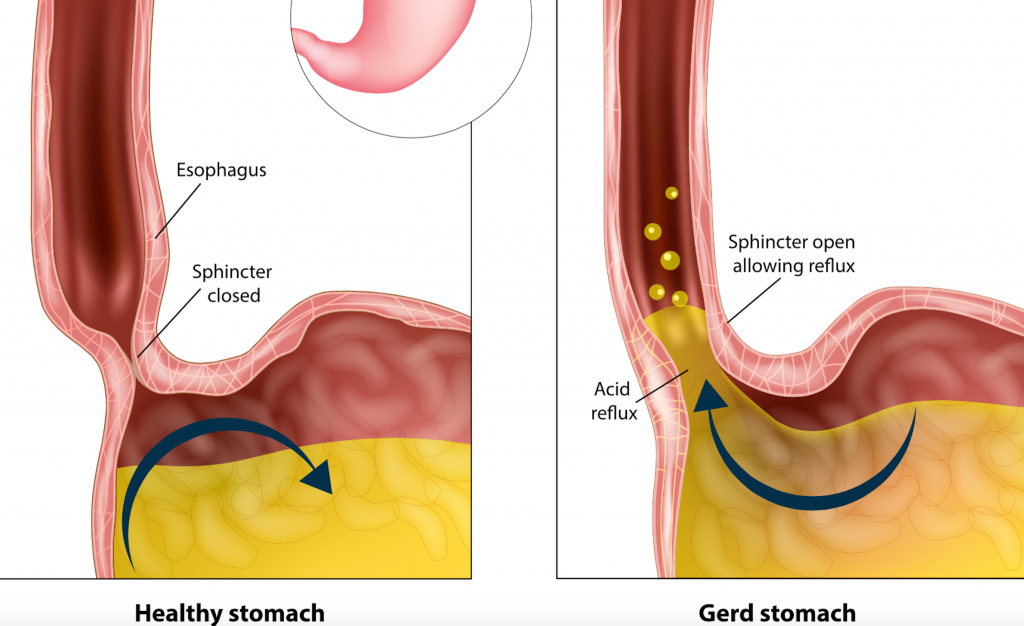
Anyone that’s read the scientific literature will tell you heartburn and GERD are not caused by too much stomach acid.
Instead, heartburn and GERD are caused by a dysfunction of the muscular valve (door way) that separates the esophagus and the stomach.
This doorway from the esophagus to the stomach is called the lower esophageal valve (or LES for short).
The LES opens to allow food and liquid to enter the stomach.
If the LES is working correctly, it doesn’t matter how much acid there is. Acid won’t move back into the esophagus.
However, if the LES isn’t working correctly, acid from the stomach can move back into the esophagus and create symptoms of heartburn and GERD.
Therefore, to resolve heartburn and GERD, we need to make the LES work properly.
So, the question we should be asking is…
What’s Causing The LES to Malfunction?
To understand how to resolve heart burn and GERD for good, we need to find out what’s causing the LES to malfunction.
Firstly, an increase in intra-abdominal pressure (IAP) is one of the major causes that makes the LES malfunction.
This is because an increase in intra-abdominal pressure (pressure inside the stomach) pushes contents, including acid back through the LES and into the esophagus.
What causes the increase in intra-abdominal pressure?
- Carbohydrate mal-absorption
- Bacterial overgrowth
- Eating too much carbs in one sitting
- Bending over or lying down after eating
The last two can be modified by our lifestyle habits.
But what causes carbohydrate malabsorption and bacterial overgrowth?
Based on my experience I believe the answer to both of these questions is the same. The answer: Low stomach acid
Surprisingly, exactly opposite of what antacid TV commercials are telling us!
Low Stomach Acid Is A Problem
Stomach acid is in the stomach because it needs to be there!
One of the reasons acid is in our stomach is to help us digest food, absorb nutrient and stop harmful bacteria from growing inside our stomach!
In fact, most bacteria shouldn’t survive more than 15 minutes inside our stomach.
However when stomach acid is low (too alkaline), harmful bacteria now has an opportunity to grow, resulting in bacterial overgrowth.
Adequate stomach acid is vital for digestion because it helps stimulate the release of our own digestive enzymes into the small intestine to help us digest.
However when carbohydrates aren’t digested properly because of a lack of stomach acid, its’ undigested carbs that provide food for microbes to ferment and produce gas.
Therefore, if stomach acid is low:
- Enzymes aren’t released for digestion
- Carbs won’t be digested properly (carb malabsorption)
- Bacterial overgrowth develops
This leads to gas in the stomach resulting in increased intra-abdominal pressure that pushes contents back through the LES.
This is driving force behind heartburn and GERD.
The 5 Steps To Stop Heartburn & GERD
Finally, here are the steps I have successfully used to help patients resolve heart burn and GERD
1. Reduce Bacterial Overgrowth
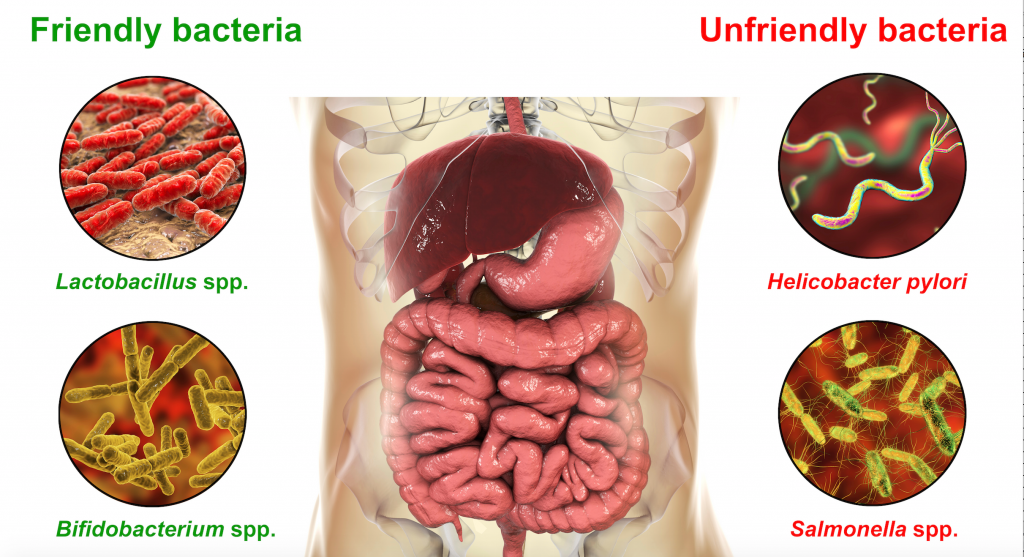
One of the problems with bacterial overgrowth such as H. pylori, is it can suppress stomach acid.
This creates a cycle where bacterial overgrowth and low acid reinforce each other in a cycle of downward destruction.
How do we reduce bacterial overgrowth?
Reduce carbohydrates!
- A study at Duke University saw five patients with severe GERD eliminate symptoms in one week on a low carb diet.
- A second study saw a low carb diet on eight patients with severe GERD. All patients with the most severe reflux saw a decrease of acid reflux, comparable to treatment with drugs.
The reason a lower carb diet works is because there aren’t excess carbs escaping absorption and becoming food for bacteria.
Therefore reducing intra abdominal pressure and therefore reducing acid reflux!
I use variations of high protein or FODMAPS diet, focusing on higher protein meals and low carbohydrate.
2. Restore Stomach Acid
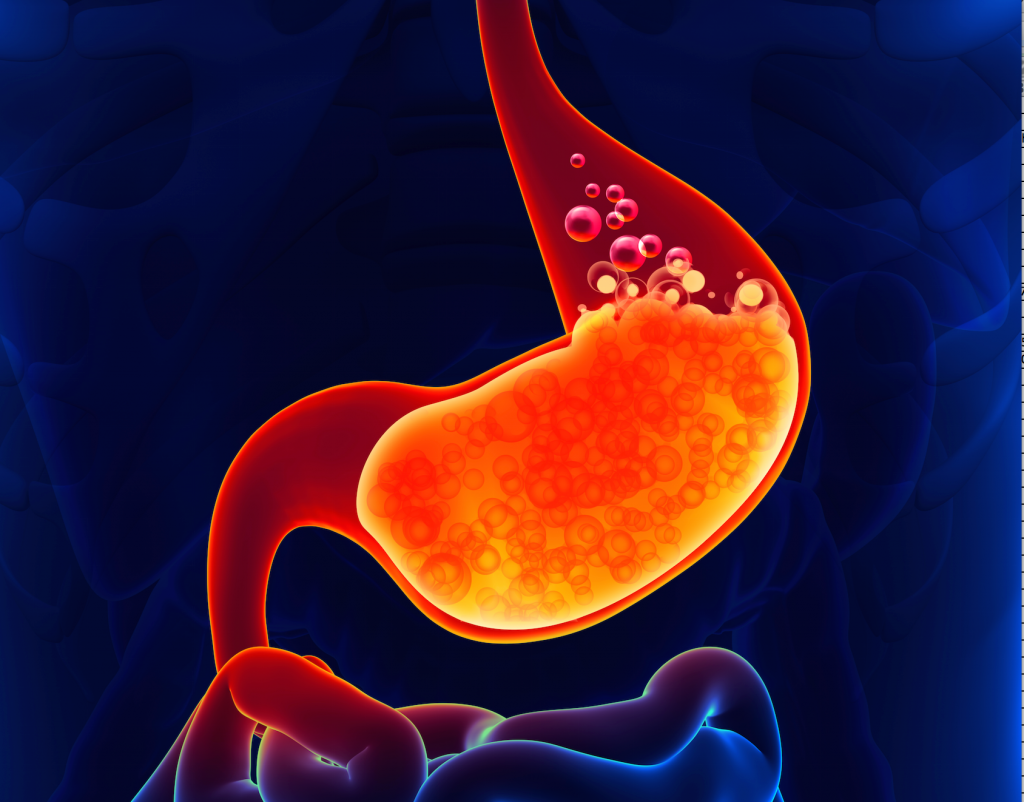
Firstly, it’s a good idea to test the patients stomach acid levels in the first place.
The most common test involves a Heidelberg capsule, which is a pH sensor and radio transmitter inside a vitamin capsule.
When swallowed, the sensors measures the pH of the stomach and signals the findings via radio signal to a receiver outside the body.
It’s a good test, however there’s a reliable method that can be done.
This is by using a HCL supplement that contains pepsin (HCL should always be taken with pepsin). Personally I use the brand, Throne Research.
I start patients with one capsule taken in the first few bites of their meal.
Caution: HCL shouldn’t be taken by anyone with history of stomach ulcers, or anyone taking anti-inflammatory drugs such as corticosteroids or other NSAIDS. These drugs can damage the gut lining and HCL may aggravate it.
After taking the capsule, if there is no mild burning sensation, there is a high probability they have low stomach acid.
This means taking a HCL supplement will be of benefit to them.
Using Herbal Medicine To Stimulate Acid
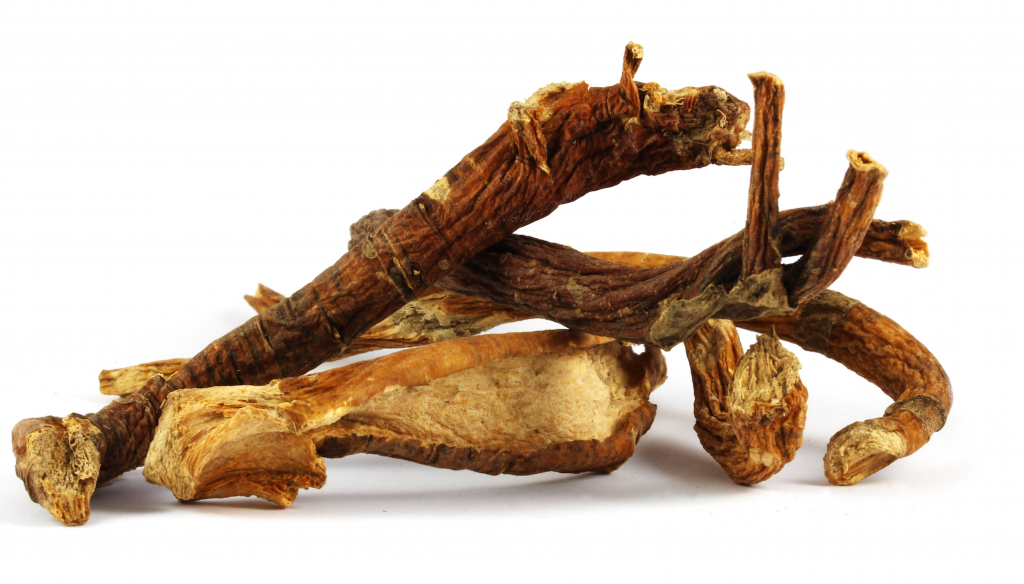
Another way to stimulate acid is via herbal medicines.
Studies have shown bitter herbal medicines increase the flow of digestive juices, including HCL, bile, pepsin, gastrin and pancreatic enzymes.
One study in Germany, found gentian root provided relief of GI symptoms in 205 patients.
The best option is to see a licensed herbalist, who can prescribe a formula containing herbal medicines for your particular condition.
3. Restore Good Bacteria

Restoring a balance of good bacteria within the intestine is also useful.
- Researchers in Australia has demonstrated probiotics are effective in reducing bacterial overgrowth in the small intestine of IBS patients.
- Probiotics have been shown to increase cure rates of treatment for H. pylori.
Foods like yogurt and kefir generally have higher concentrations of probiotics than supplements.
Kefir and yogurt offer additional benefits as they contain extra minerals, vitamins, protein, amino acids, L-carnitine, fats, CLA, and antimicrobial agents.
The one problem with milk products is they’re higher in carbs, which could be a problem for people with severe bacterial overgrowth.
It’s best to make kefir and yogurt at home, for a higher microorganism count.
If dairy doesn’t suit some patients, water kefir is great too. Other options include raw kim-chee, sauerkraut and kombucha.
4. Build A Strong Gut Lining
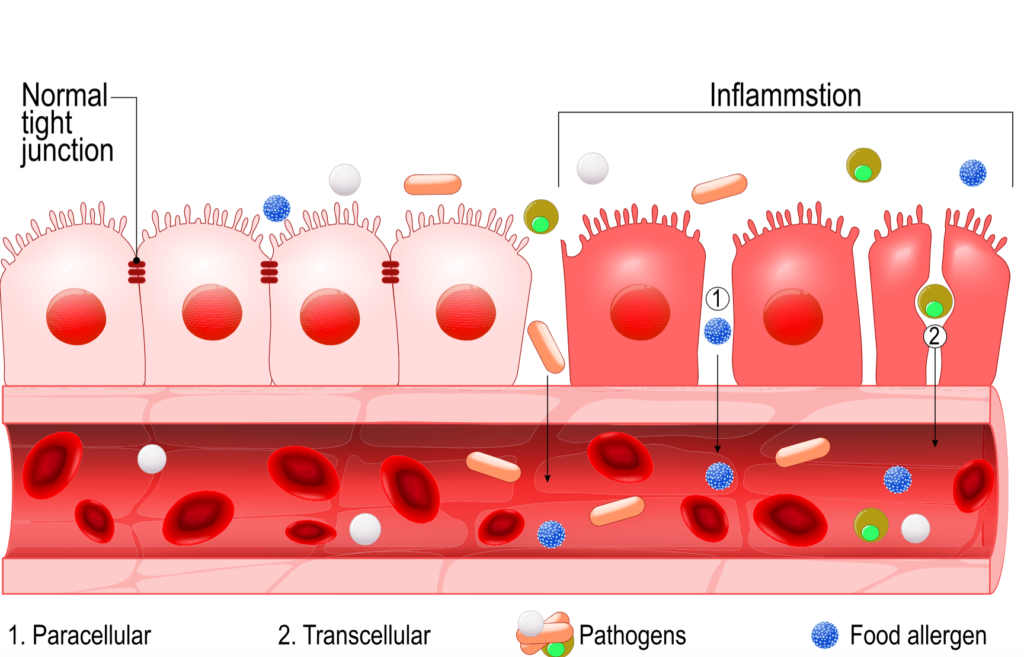
Chronic stress, bacterial overgrowth, NSAIDs and aspirin can all damage the lining of our stomach.
Since it’s the mucosal lining that protects our stomach from it’s own acid, a damaged lining can cause irritation, pain and eventually ulcers.
Natural ways to restore the mucosal lining of the stomach includes consuming organic or homemade bone broth.
It’s also rich in collagen, which has been shown to benefit people with ulcers.
Bone broth has glutamine, an important metabolic fuel for intestinal cells that benefits the gut lining in animal studies.
5. Resolve Underlying Dis-stress
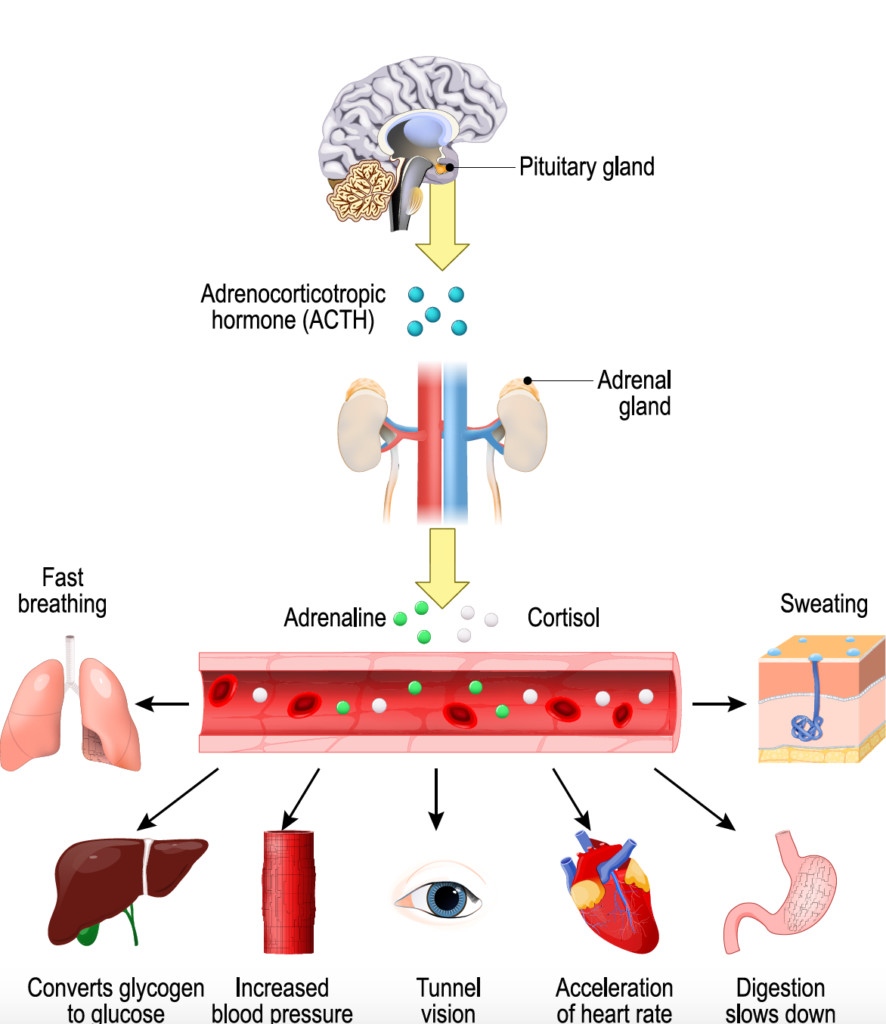
Unresolved stress suppresses prostaglandin production.
Therefore it’s vital for anyone dealing with digestive problems to deal the the underlying causes to their dis-stress.
In Summary of HeartBurn & GERD
The traditional approach to treating heartburn and GERD involves reducing stomach acid.
Antacids may temporarily make the symptoms better, but they don’t address the underlying cause.
This means people end up taking acid reducing drugs for many years, when they shouldn’t be taken for more than 6 weeks.
This is a problem because acid stopping drugs:
- Promote bacterial overgrowth
- Weaken our immune system
- Reduce nutrients absorption
- Increase the risk of IBS and digestive disorders
- Raises the risk of stomach cancer.
This is not evidenced based medicine, they’re experimenting with patients.
The good news is heartburn and GERD can be reversed by improving the function of the LES by
- Reducing intra-abdominal pressure
- Eating a low carb diet
- Regenerating stomach acid
- Restore good bacteria
- Develop a strong gut lining.
About The Author

David is a registered Chinese medicine practitioner in Melbourne. He has written a number of eBooks including The Pocketbook guide to Chinese medicine.
Connect with David on Facebook and Instagram
If you got value from this article, please comment below
